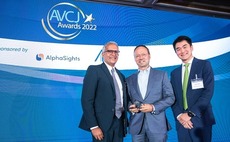
SE Asia buyouts present localization challenge – AVCJ Forum
Southeast Asia’s emerging buyout opportunity represents a localization challenge for private equity firms as they try to distribute resources in order to maximize potential deal flow, industry participants told the AVCJ Singapore Forum.
"There are some areas of commonality but at the end of the day it's not a very deep market so it's all about network and human interaction. You need to be on the ground," said Chow Yin Tan, senior partner at Navis Capital Partners.
Private equity investment in Southeast Asia stands at $3.7 billion so far this year, of which more than two thirds has been in out buyout transactions. However, two Singapore-based deals - Temasek Holdings' move to take full ownership of Olam International and KKR's agreed acquisition of Goodpack - account for the vast majority of this total. In each of 2012 and 2013, the buyout share was below 30%.
While Singapore remains a dominant force in Southeast Asia buyouts, investors are increasingly looking further afield, but building a local presence in each market may not be practical.
"Are you a Singapore-based GP and everyone flies in and out Monday to Friday or do you set up local offices?" asked Doug Coulter, partner at fund-of-funds LGT Capital Partners. "There is not one perfect model. If you are eight people, you would have three in Kuala Lumpur, three in Singapore and two in Jakarta? It's never just about the deal but how you set yourself up and manage people."
Ashish Shastry, managing partner at Southeast Asia-focused Northstar Group, accepts that even coverage of the entire region is not necessarily the best fit for his firm. Northstar's typical deal involves working with entrepreneurs and family-owned businesses. These people rarely use intermediaries so deals will only come through established relationships.
"If we were dividing resources across multiple countries it would be difficult. We concentrate on Indonesia because we think it represents the biggest opportunity in this part of the world," Shastry said. "We should be able to meet a lot of the movers and shakers before they become so big that they don't need our capital."
And timing is important in a high-growth market. Northstar has in the past written off companies because they are too small only to find three years later that the businesses have grown so much they slip off the upper end of the equity check spectrum.
Tan agrees that mid-cap, high-growth businesses represent fertile hunting ground for private equity, although family ownership is often a complicating factor with due diligence dragging out deals. Furthermore, acquisition financing has yet to become meaningful, which can limit the potential economics of a buyout transaction.
"Leverage is more available today but all it does is help you close the gap between buyer and sellers," Tan said. "It is not yet at a point where it helps improve the risk and return."
Latest News
Asian GPs slow implementation of ESG policies - survey
Asia-based private equity firms are assigning more dedicated resources to environment, social, and governance (ESG) programmes, but policy changes have slowed in the past 12 months, in part due to concerns raised internally and by LPs, according to a...
Singapore fintech start-up LXA gets $10m seed round
New Enterprise Associates (NEA) has led a USD 10m seed round for Singapore’s LXA, a financial technology start-up launched by a former Asia senior executive at The Blackstone Group.
India's InCred announces $60m round, claims unicorn status
Indian non-bank lender InCred Financial Services said it has received INR 5bn (USD 60m) at a valuation of at least USD 1bn from unnamed investors including “a global private equity fund.”
Insight leads $50m round for Australia's Roller
Insight Partners has led a USD 50m round for Australia’s Roller, a venue management software provider specializing in family fun parks.








